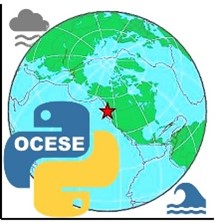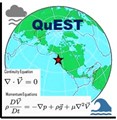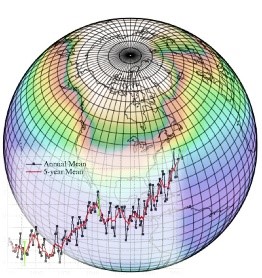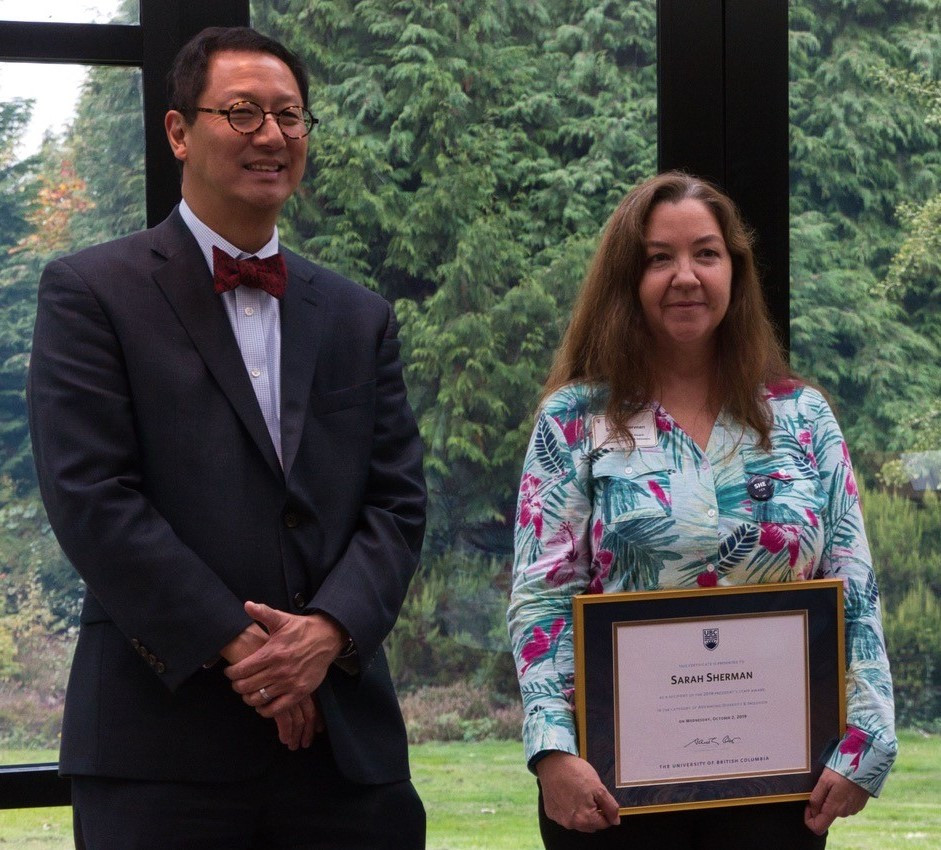Current (2021) personnel actively engaged in educational development include:
- Dedicated education development and support: F. Jones, S.B. Sherman
- Educational Leadership faculty: S. Harris, S. Sutherland, T. Ivanochko, S. Hollingshead, B. Gilly
- Lecturers: L. Porritt, L. Longridge, K. Hodge, M. Ver, M. Lipsen.
- Research faculty with leadership roles in active education projects: E. Eberhardt, P. Austin, S. Waterman, C. Schoof, P. Tortell, J. Scoates
For earlier, completed education projects see our Previous Initiatives page.
For scholarly contributions from EOAS education activities, see this PDF page.
Opensource Computing for Earth Science Education - OCESE
Opensource Computing for Earth Science Education is a three-year, large TLEF-funded project that will incorporate open source computational tools in EOAS courses and transform teaching practices to support hands-on interdisciplinary learning in data-driven scientific exploration.
Click here to learn more about OCESE.
Quantitative Earth Sciences Transformation - QuES T
T
Quantitative Earth Sciences Transformation initiative seeks to transform and modernize quantitative Earth sciences education at UBC. This two-year project is supported by UBC’s Advancing Education Renewal fund.
Click here to learn more about QuEST.
Field Learning and a New Field Station
EOAS students have many opportunities to learn in the field. Being adjacent to the Pacific Ocean and Coast Range mountains means day trips from campus are inspiring and varied.
UBC uses the Bamfield Marine Sciences Centre for our oceanography field course (EOSC 473), as well as local coastal and marine locations.
The UBC geology field station near Oliver in the Okanagan Valley continues to provide exceptional opportunities to practice field skills of all kinds. As of in spring of 2021, our brand new facilities will enhance all aspects of living, studying and conducting research in the field by geologists, environmental scientists, ecologists and others.

Also, the first field course for geoscientists and geological engineers, EOSC 223, is currently being reworked. The long running and very successful Saltspring Island field experience (a week following exams) will be evolving towards a more sustainable and adaptable format, and the framework for the whole course is being updated. There is are also interest in other field course or field experience initiatives, including (potentially) a more engineering – focused field course.
Climate Education Initiatives
-
UBC Climate Education Grants: these $5k grants support on of climate change content and teaching approaches into existing undergraduate and graduate courses. EOAS faculty were
 successful in funding two projects.
successful in funding two projects.
- Climate Change for EOSC 1xx courses (S. Waterman, S. Sutherland, L. Porrit, L. Longridge, M. Ver). Modular climate change content is being developed for four different first year general science courses about natural hazards, the solid Earth, Oceans & atmospheres, and Earth history. Modules will be adapted to align with the context and perspectives specific to each course. Content will include global observation and modelling results as well as implications of climate change for ecosystems, physical environments, infrastructure, human health, the economy, and social equity.
- A community dashboard for climate model analysis (P. Austin and R. White). An open-source, locally hosted interactive tool or “dashboard” is being created which will allow students in several courses to explore, compare, visualize and analyse climate model output from state-of-the-art climate models, including comparisons of future projections from multiple future emission scenarios.
- EOSC 340 upgrades (part of OCESE): A local interactive Python-based app is being built to emulate the “MODTRAN” model of David Archer, 1987. This will allow instructors and students to explore effects of CO2, CH4, Ozone, H20, Freon and location on the globe on atmospheric absorption spectra, thus helping understand critical concepts associated with climate and climate change.
- EOAS Climate Emergency – “EOAS recognizes the existence of a climate crisis, which demands coordinated and determined global action.” The EOAS website has a whole section devoted to current EOAS initiatives, people and information about climate, climate change and actions to address it.
Equity, Diversity and Inclusion
- “We must recognize the inherent privilege many of us have enjoyed along our educational and professional trajectories and acknowledge that many still face barriers in their own paths forward. Building on the outstanding work of a number of people in EOAS we must continue to identify and eliminate obstacles to equity and inclusion, working to increase all forms of diversity in our department.” P. Tortell, Dep’t Head, from the EOAS statement on anti-racism.
- From the EDI initiatives information site from UBC Science: “A diverse workplace signals that the faculty draws from the best talent available, that our students get a well-rounded education, and that research programs are informed by diverse perspectives. Diversity is synergistic with excellence and promotes equitable access to the rewards of an academic career.”
- Discover more about UBC Women in Science, view a seminar entitled “Thriving in STEM – 2SLGBTQIA+ Perspectives”, or watch a video on Diversity at UBC Science.
-
In October 2019, Sarah Bean Sherman (Science Education Specialist
 in EOAS) was awarded the UBC President's Staff Award for Advancing Diversity and Inclusion.
in EOAS) was awarded the UBC President's Staff Award for Advancing Diversity and Inclusion. - EOAS Equity, Diversity & Inclusion: The EOAS website has a dedicated section for equity, diversity and inclusion, including: Vision, Goals & Committee Members; EDI Resources for students, faculty, and staff; EDI events happening around us; and an archive for EDI articles and talks.
Other initiatives
- A new tenure-track research faculty position in DBER or Discipline-based education research (focus on science, geoscience and experiential learning). Application deadline was January 31, 2021 and interviews will be conducted later in the spring.
- Engineering qualifications for professionals: EOAS is proposing to add an online Certificate Program in for Geological Engineers, focusing on industry professionals interested in professional development in Geological Engineering. First phase proposal was accepted and a full project funding request was submitted in early February 2021 to UBC’s Online Learning Advancement Fund.
-
Geoscience Education graduate level course – EOSC 516; a unique opportunity to gain valuable insight about how learning works and how teachers can support effective learning with a focus on postsecondary geoscience learning.

- The Pacific Museum of Earth (PME) provides extensive resources, tours and facilities for teaching, learning and education specifically for the public and K-12 students.
